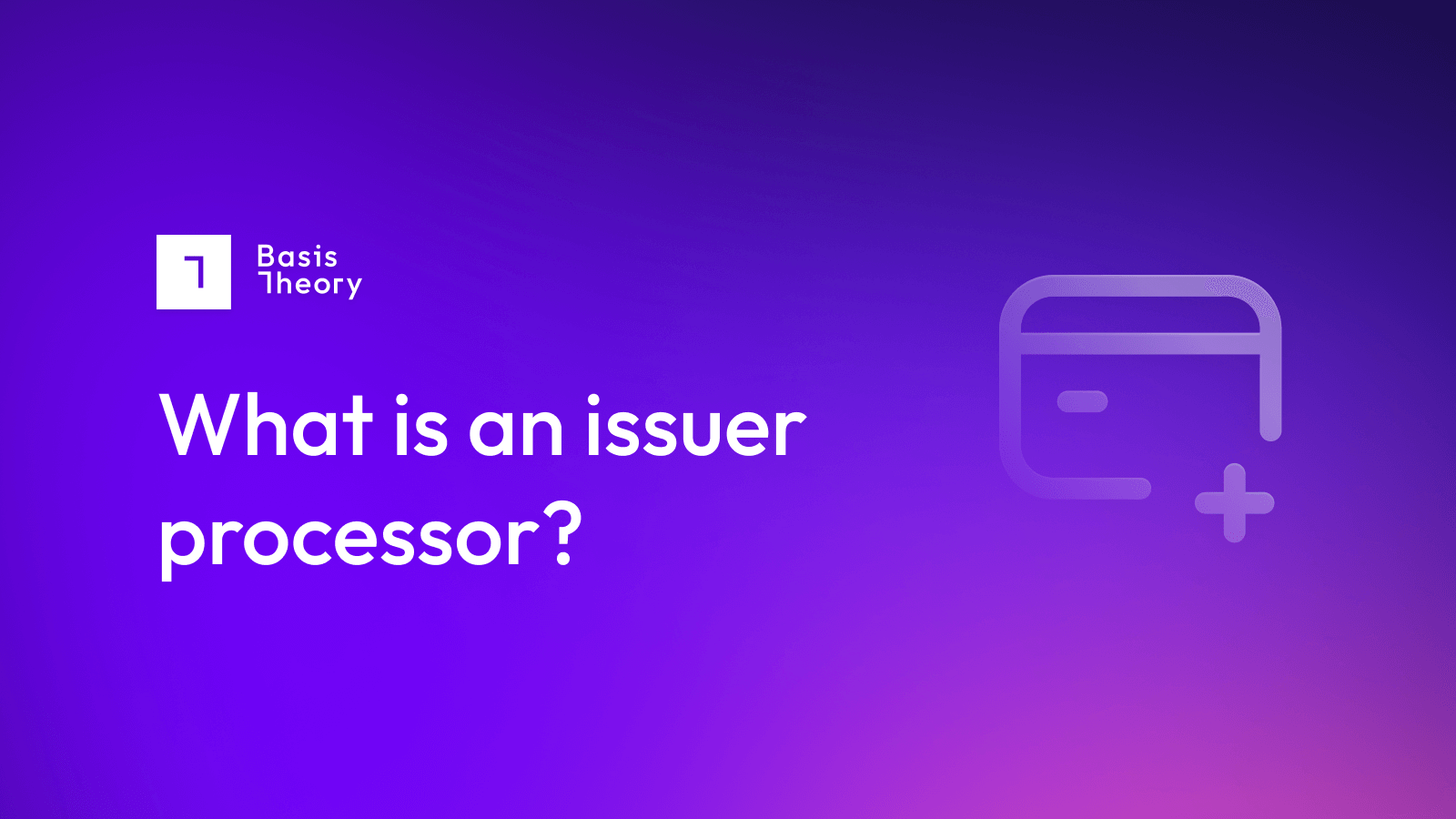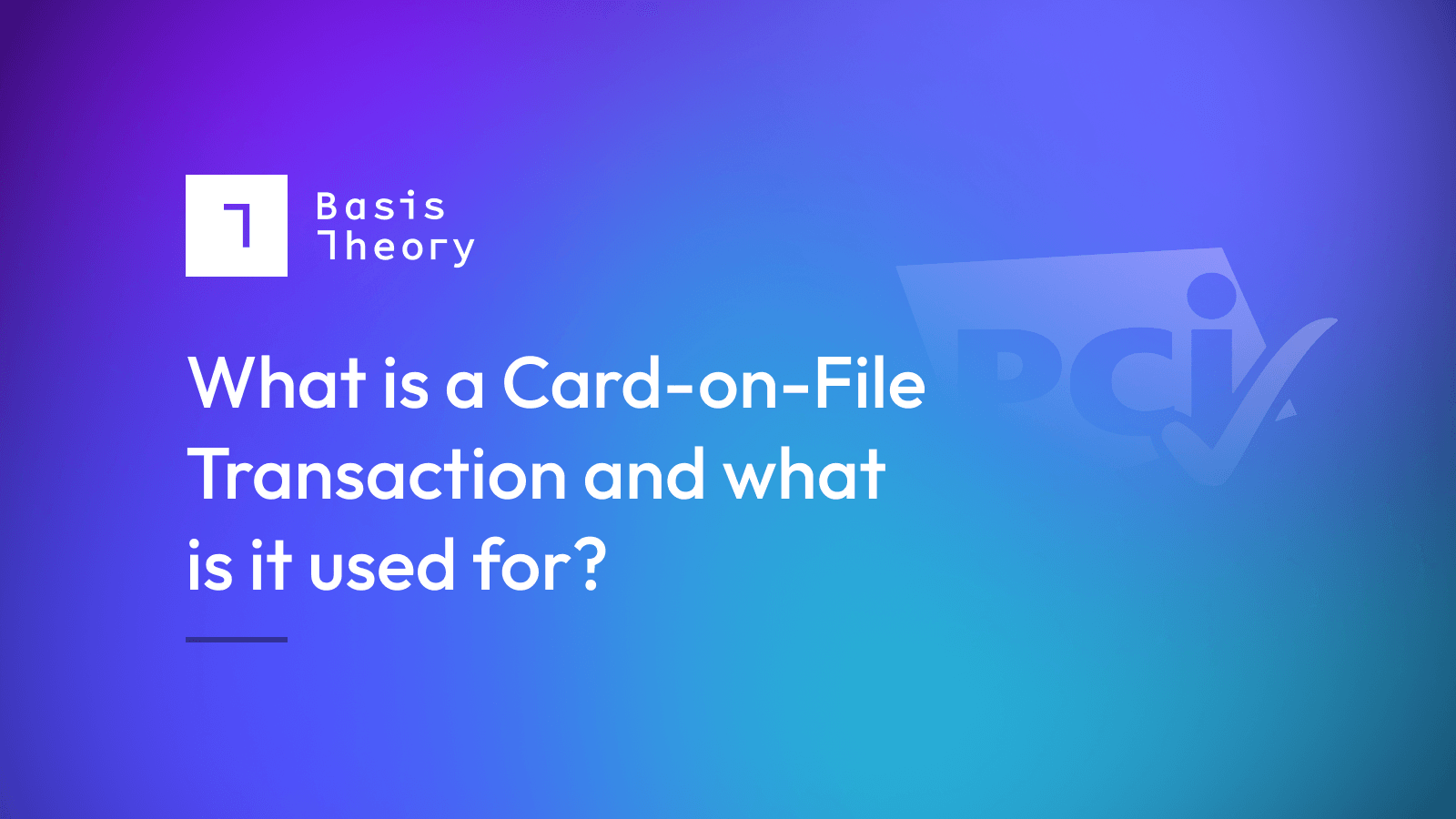What is an Issuer Processor?

An issuer processor manages key payment transaction activities for issuing entities: issuing cards, authorizing and settling transactions, and acting as a system of record. They may also offer a more complete set of services such as digital wallets, pre-approved card network integrations, and advanced fraud management capabilities.
Vitally, the issuer processor ensures that the funds from approved transactions are successfully and efficiently disbursed from the issuing bank to the acquiring bank.
Unlike acquiring processors, which help merchants and their Payment Service Providers (PSPs) request approval for transactions, issuer processors receive those requests, assess which should (and should not) be authorized, and subsequently initiate the delivery of funds from the issuing to the acquiring bank.
Although both entities work in concert to enable the free flow of commerce, acquiring and issuer processors work on opposite sides of the deal. In principle, an issuing bank would have few, if any, relationships with acquirer processors, and merchants would have few, if any, relationships with issuer processors.
Do All Issuing Banks Use Issuer Processors?
The largest banks and financial institutions do not use issuer processors, choosing instead to invest in the infrastructure and human capital necessary to operate the processes in-house. The cost and resource requirements of managing this complex process can be significant, which is why independent issuer processor services companies have risen: their own consolidation of the transaction volume of large numbers of smaller banks, credit unions, and other business concerns can give them the same economies of scale that nationwide high street banks enjoy.
How Issuer Processors fit into the Payment Process
For most merchants, issuer processors are effectively invisible: once they pass their transaction to their own PSP, the remainder of the transaction’s journey is something of a black box. The standard understanding of the steps to close a transaction do not generally distinguish between the efforts of an issuer processor and a bank: at the point that the transaction passes the PSP’s security screens, it is passed ‘to the issuing bank’ for authorization, and this step may be carried out by the bank itself or by a contracted issuer acquirer.
That said, without the services of a universe of issuer processors, there would be significantly less financial instruments available to transact business, and the thriving market of virtual corporate cards may not exist at all.
Do issuer processors create business opportunities?
Issuer processors are a relatively new phenomenon, and they have opened up significant business opportunities for businesses both within and outside the financial services industry. Within the financial services sector, the offerings of an issuer processor can reduce the processing costs and fraud risk, while also improving the range of services offered, by smaller or regional banks or credit unions. When those smaller institutions are competing with megabanks, they may be under pressure to provide new capabilities that are beyond available budgets, making the option of contracting with an outside issuer processor attractive.
At the same time, organizations that are not strictly in the financial services sector are exploring ways to offer new features to serve their customers. A corporate travel agency, for instance, may offer to provide virtual company credit cards to its customers, and the services of an issuer processor can be used to manage card numbers, provide transaction authorization, and administrate financial activities.
Because most businesses outside of banking—even those involved in the fintech sector—do not generally have established processes to manage what is effectively the introduction of an independent credit card brand. Issuer processors can carry the load, just as more recognizable merchant-side PSPs help companies unaccustomed to transacting credit card deals to launch rapidly and effectively.
Issuer Processors and Risk
As the data manager and distributor, an issuer processor takes on much of the fraud risk in the transacting deals. It will seek to ensure that fraudulent deals are not authorized, protect the actual card issuer from settling deals where the account holder has insufficient funds, and so forth.
As such, the issuer processor will have strict views on whose deals it views more or less favorably.
From the merchant perspective, there is a two-tiered risk set here: the issuer processor connects directly with the PSP, and will use its fraud management system to assess reliability, meaning that the PSP must be sure not to send bad transactions; in turn, then, the PSP’s fraud management system will monitor its customers for any patterns of risky transactions. The PSP, then, acts as a security guard to limit the amount of bad deals presented to the issuer processor, which itself acts as the barrier between fraud and the card networks.
.png?width=365&height=122&name=BTLogo%20(1).png)



